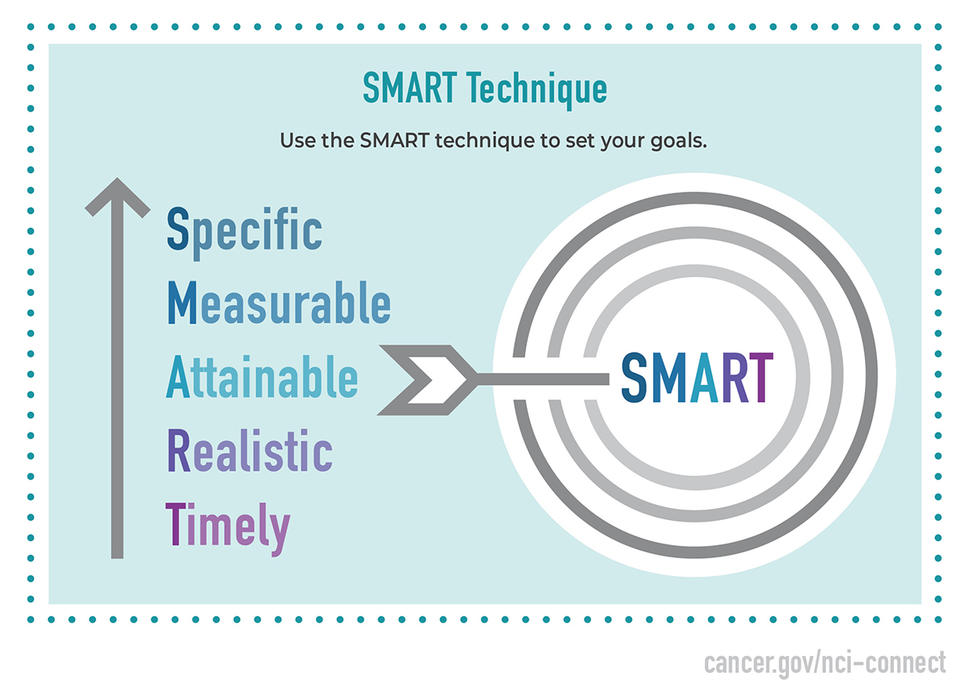Staying Positive
It can be hard to stay positive when dealing with a brain or spine tumor diagnosis. Feelings of fear, anger, and frustration are normal. But seeing the positives in your life can be a great tool to shift your perspective. It allows you to be hopeful and accept the challenges that life brings you. While it’s also important to give yourself time and space to feel what you feel, the habit of staying positive can help you find happiness.
Tips to Stay Positive
- Read an inspirational or funny book.
- Write positive messages that build your self-esteem. Hang these messages on a mirror or anywhere you can easily see them. Recite them daily while visualizing yourself feeling at peace.
- Set positive intentions for each day. Examples include:
- I will not let stress get the best of me today.
- Healing is a state of mind and heart, and I am healed.
- I am not this disease.
- I refuse to be defined by cancer and it does not control my life.
- Reduce the time you spend with negative people and habits.
- End each day by listing at least three positive things that happened. Savor these moments.
- Find ways to move your body (stretching, wiggling your fingers and toes, relaxing parts of your body, etc.) that work for you.
- Learn to stop and observe without reacting in negative moments.
- Say “no” to things that don’t put you in a good frame of mind.
- Try to go outdoors when you can.
- Disconnect from technology and social media if those activities make you feel negative.
Any time you become stressed or overwhelmed, stop and take a deep breath. Say a positive message out loud and pair it with a relaxation technique. Repeat this as many times as it takes to improve your mood. Remember, you are in control of your mind and thoughts.
Resources
Accepting Yourself Now
You may feel lost and consumed by your brain or spine tumor diagnosis. You may grieve the old life you once had. Remember, you’re still an important piece of this whole puzzle we call life. Learning ways to let go of past expectations will allow you to heal and live a meaningful life.
Questions to Ask Yourself to Live Your Life with More Meaning and Purpose
- What has changed and stayed the same about my life since the diagnosis?
- How have I changed or stayed the same?
- What brings meaning to my life? How can I incorporate these things more into my life?
- What do I want others to know about me? How can I tell my story to others?
- Are there things I want to do more of? What do I like to do the most?
- What goals do I have for my life?
- What have I learned from my past experiences?
- What is most important to me? How can I add more of it?
- What am I thankful for?
- What gives me hope and strength?
- What have the losses in my life taught me?
Although your life has forever changed, you’re still in control of how you respond to it. Think about what you’re grateful for and what you have accomplished. By accepting all aspects of your new life, you can positively cope and influence those around you.
Resources
Setting Goals
Setting goals can help you keep track of the things that you want to accomplish. It can also motivate and empower you to move forward. As you set goals, focus on the things you’re able to do. Goals can be categorized as short-term, long-term, or life goals.
- Short-term goals are things you want to achieve today, this week, this month, or this year. Examples include: taking 15-minute daily breaks at work to stretch, walking for 10 minutes three days a week, or writing three journal entries each month. These goals can also include other ways to keep you well, such as writing reminders to take your medicines, going to bed at the same time each night, asking for help from your spouse to avoid feeling overwhelmed, or seeing a counselor once a week. Short-term goals can help set the stage for long-term goals.
- Long-term goals are things you want to achieve in the future. They’re not tasks you can do in a month or year. They require time and planning. For example, research and plan a vacation or take a class to learn something new.
- Life goals are major goals you would like to accomplish in your lifetime. They guide you toward what you find important in your life. They are also part of the legacy you want to leave behind. For example, getting married, traveling to five or more countries, setting up a college fund for your children, being in your dream job, or buying a house.
Goal Planner
Create your own list of goals and action steps to achieve them. Download the template >
Tips to Set Goals
- Set short-term goals first and pace yourself to complete them. Don’t overwhelm yourself by focusing too far ahead.
- Make a list of goals and estimate deadlines to accomplish them. Then divide your goals into categories: short-term, long-term, and life-long.
- Use the “SMART” technique to set your goals:
- Make your goal Specific.
- Decide how it is going to be Measured.
- Ask yourself if it is Attainable.
- Be Realistic about being able to accomplish this goal.
- Be Timely by deciding how long you will give yourself to complete your goal.
- Plan to work toward your goals when you have the most energy.
An important lesson in goal setting is to reward yourself through the process. If you got out of bed, walked to the mailbox, or wiggled some of your fingers today, be your own cheerleader and acknowledge what you accomplished. Don’t wait until you have achieved a big goal to celebrate your accomplishments. You should also be patient if things don’t go as planned, reassess your goals if needed, and make a list of fun activities to do when you need a break from goal planning.
Be mindful of the reason for your goals, understand the outcome you want to achieve, and take things day by day to stay motivated. Achieving these goals can help you remain focused and improve your self-confidence.
Resources
Alvina's Quick Tip:
Positive Affirmations
When things don't go as expected, NCI-CONNECT Health and Wellness Counselor Alvina Acquaye-Mallory says using positive affirmations can help you cope. Watch the video





